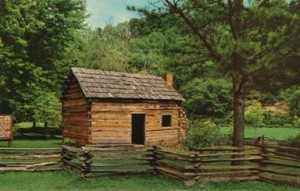Thirty-eight years ago I climbed down off a tractor and went to work for the New Castle County government. Where did my parents go wrong? Seriously, I’ve not regretted a minute of the time as I look forward to retiring from the State of Delaware at the end of June. I did tell every boss that I worked for, “If you want to fire me, let me know in January.” “Why?” “Because, then at least, I can buy some seed and get a crop in the ground!” Farming was a passion I inherited – saving farmland I had to learn.
It’s been a good run here at the Delaware Agricultural Lands Preservation Foundation in the Department of Agriculture. With over 100,000 acres of Delaware farmland permanently preserved I feel as though I’ve done what I came here to do 28 years ago. I’m the only person who has ever managed ag preservation in Delaware. Like Ted Williams’ home run in his last at-bat, I wanted to leave public service on a high note – I think I’m doing that. Planning has always been my profession – away from the farm. At the very heart of farmland preservation is good planning. Many people talk about maintaining a local food supply, or insuring the local ag economy, or supporting the noble profession of farming as reasons for putting public money and effort towards preserving farmland. Those are all good reasons. But at its very heart farmland preservation has always been, for all those reasons and many more, just plain, good planning. Preserving farmland complements good urban planning, too. It’s all part of what every jurisdiction should be doing as one of its principal goals – solid planning.
In the 1950s, when “Holly” Whyte (famous, then, as author of The Organization Man and with a definite Delaware connection as a graduate of St. Andrew’s School in Middletown) advocated for preserving farmland through placing conservation easements on prime land, it was really part of his wider vision for planning in New York City. In 1972 Whyte wrote the text for the NYC Plan. Later, “Holly” became famous for his insistence on street level plans that reflected humans’ actual activities. The connection is obvious – eating and farming are the most basic of human activities and should be at the very base of the plans we make for our civilization. The Greeks and Romans made the farmers’ marketplace (agricola) the centerpiece of their city plans. William Penn, another great city planner (and planter!) established farmers’ markets in his plans for Wilmington, Delaware. Only recently are we re-discovering the proper role of farmland and markets in our plans. I hope it’s not too late.
But preserving farmland has been my passion. Ultimately, the value of preserving farmland is a personal matter. As much as anyone in this business I’ve tried to use statistics, analysis, facts to justify the permanent protection of farms for future generations. In the final analysis, though, I have found that the public, and most farmers, have a deep-seated commitment to protecting the land that transcends numbers. While I can justify marriage (most days!) by citing the tax code, or longevity statistics, or basic economics, at the end of the day I’ve stayed with Joan for nearly forty years because I love her so much. That’s been the case with preserving farmland, too. I love doing it! I love seeing the face of an octogenarian who walks in to permanently preserve his great-grandfather’s farm. I love handing a settlement check to a young couple who are committed to farming a piece of land for a lifetime. I love it when someone who just bought a farm signs an easement and says, “Well, this farm will never be developed!” I don’t know exactly why I love all these things – but I do!
When I left home at 18 my father had a few words of advice. Fathers always do, don’t they? He said, “Whatever you decide to do with your life, try to make it something you would do even if they wouldn’t pay you for doing it.” Dad always said his vegetable farming and greenhouses were his hobbies – and he made money, too. I think I’ve done the same thing with my career. They’ve paid me pretty well for pursuing my passion. Not a bad deal! I can only wish the same for you in your career!


